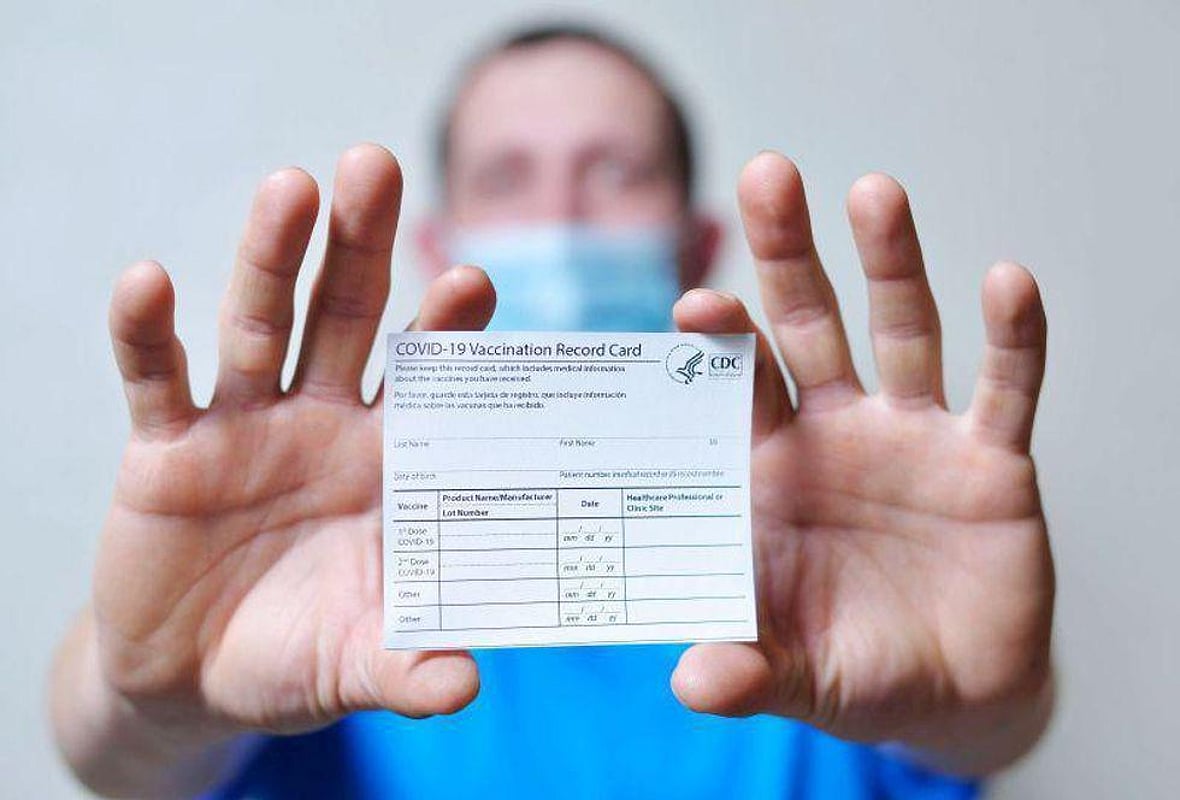Had COVID? You’re 5 Times More Prone to Get It Again If Unvaccinated

THURSDAY, Feb. 17, 2022 (HealthDay News) -- After you have recovered from COVID-19, getting at least one dose of a vaccine provides added protection against reinfection, Israeli researchers report.
Stay unvaccinated after a bout with COVID-19 and you're five times more likely than someone who has had the shot to get COVID again, the new study found. That's because the immunity acquired through an infection is short-lived.
"It's very good for three months, and may well be good for a lot longer, but it's not permanent," said infectious disease expert Dr. Bruce Farber of Northwell Health in Manhasset, N.Y., who reviewed the findings.
It's unrealistic to think that having the virus would provide permanent immunity, he said.
"That's not what you see with influenza. That's not what you see with regular coronaviruses. That's not what we see with rhinoviruses. People get infected with them over and over again. And I think that will be the case here," Farber said.
Many patients think that because they have antibodies from having COVID-19, they don't need the vaccine, he said.
"That's happening increasingly often now," Farber said. "What I say to them is: You know, you're right, there is some immunity from having had COVID, but you can prolong that immunity and reinforce that immunity with a booster."
Farber predicts people will need a yearly COVID-19 shot. Right now, the infection rate is waning, but more virus variants are likely to arise, he noted.
"We can relax now, but we may need to re-evaluate that if the community rates rise," Farber added.
For the study, a team led by Ronen Arbel of Clalit Health Services in Tel Aviv collected data on more than 149,000 patients in Israel. All had recovered from COVID-19 and had not been previously vaccinated.
More than 83,000 of them were vaccinated after recovery. Of those, 354 got COVID-19 again, compared with 2,168 who remained unvaccinated, the findings showed.
That works out to about two reinfections per 100,000 among vaccinated patients compared to 10 per 100,000 among the unvaccinated.
These data were based on the Pfizer-BioNTech vaccine, which was 82% effective among 16- to 64-year-olds, and 60% effective among older people.
Its effectiveness was the same whether patients received one or two doses, the researchers noted. That finding supported evidence from earlier studies that found one dose was plenty to protect against reinfection.
Dr. Marc Siegel is a clinical professor of medicine at NYU Langone Medical Center in New York City.
Siegel, an infectious disease expert who had no part in the new study, said, "People who have had COVID should get the vaccine. How many doses they get has to do with their doctor and their situation."
But, he advised, everyone should get at least one dose.
"I can't think of a reason not to do that," Siegel said.
"This is a great shot," he added. "This is a pandemic and it's a miracle we have this vaccine. The vaccine works. The immunity you get from it is important and getting it on top of recovery is a good strategy."
The findings were published online Feb. 16 in the New England Journal of Medicine.
More information
For more on COVID-19 vaccinations, head to the U.S. Centers for Disease Control and Prevention.
SOURCES: Bruce Farber, MD, chief, infectious diseases, Northwell Health, Manhasset, N.Y.; Marc Siegel, MD, clinical professor, medicine, NYU Langone Medical Center, New York City; New England Journal of Medicine, Feb. 16, 2022, online
Related Posts
Resolved to Lose Weight in 2023? Experts Compare Popular Diets
TUESDAY, Jan. 3, 2023 (HealthDay News) -- Losing weight is one of the most...
Cesarean Section Tied to Lower Graduation Rates in Offspring
MONDAY, March 27, 2023 (HealthDay News) -- Chances of graduating from lower and...
El ciclismo de montaña podría no ser tan riesgoso como crees
MARTES, 4 de septiembre de 2023 (Noticias de HealthDay) -- Si el ciclismo de...
Un nuevo virus transmitido por las garrapatas se propaga por todo EE. UU.
JUEVES, 17 de marzo de 2022 (HealthDay News) -- Un virus potencialmente letal...
